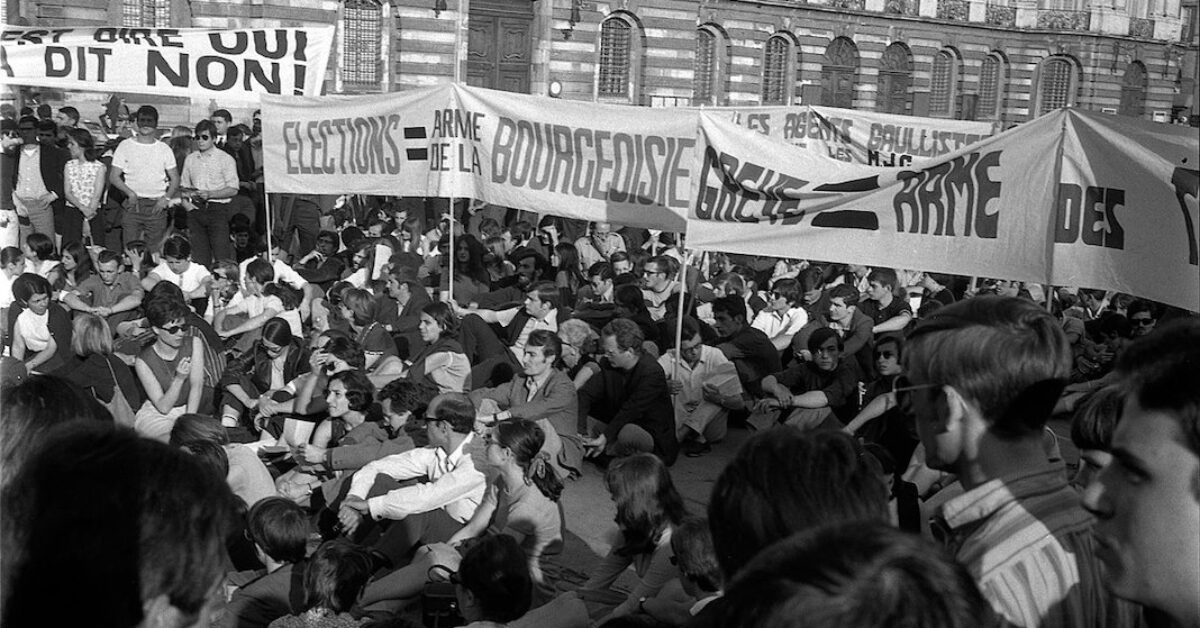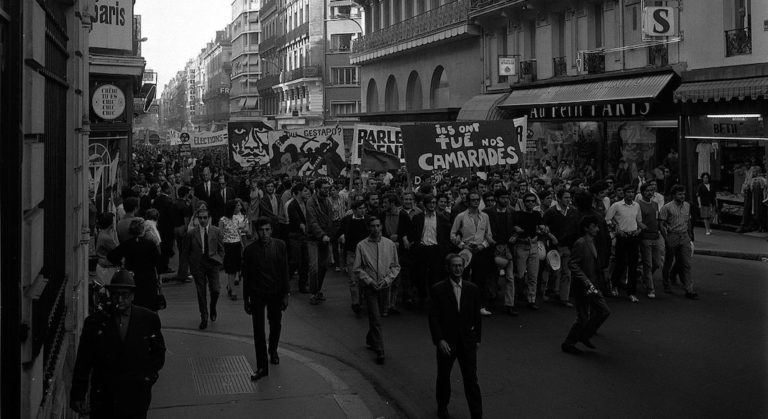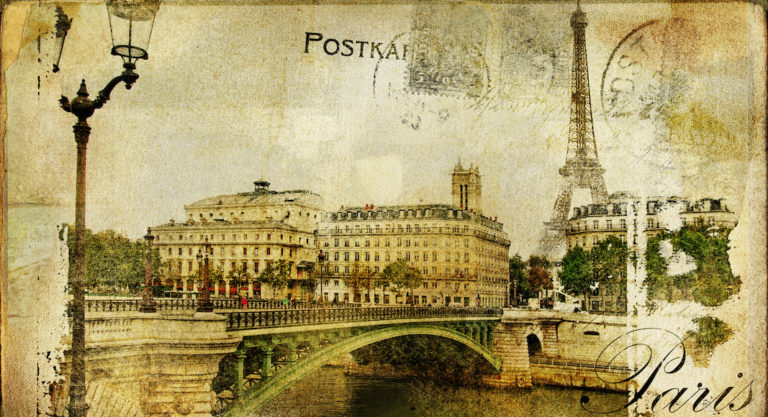As the world commemorates the 50th anniversary of May 1968 in France — a period of cultural tumult and social change — much of the collective memory of the event forms a broken mirror to today’s political activism in France. From “Why French students are protesting again – The shadow of ’68” to “France’s protesters revive ghosts of 1968 revolt,” today’s student barricades and worker protests are held up as reincarnations of May 68.
Yet through most of the spring, it was hard to discern that such a significant anniversary was on the horizon in Paris. Parisians simply didn’t want to talk about it, or at least go on the record about it.
“Talking about 68 is necessarily to give one’s opinion on the events, it’s therefore to give one’s political affiliation,” Martin Megevand, a professor at Université Paris VIII, Vincennes-St Denis, told Frenchly. Though Parisians and French people more broadly are rarely afraid to discuss politics, there is no fun or devil’s advocate to be played when it comes to May 68, which reveals one’s true colors around a topic that is still a hot-button topic for many French.
Papers of record like The New York Times and Le Monde have spent considerable editorial resources on lengthy features looking at the 50th anniversary of May 68, doing their best to speak to intellectuals and witnesses at the time of the student and worker protests.


From Paris to the Provinces, from intellectuals to manual laborers, “each person that engaged, engaged himself all the way,” former Beaux-Arts instructor Bruno Queysanne told The Times, having witnessed the 1968 insurrection at the country’s premier art and architecture school. “That was how France could stop running, without there being a feeling of injustice or sabotage. The whole world was in agreement that they should pause and reflect on the conditions of existence.”
The main assertion in The Times’ feature is that key social movements emerged from May 68 — i.e., women’s liberation and gay rights movements — and that the upheaval “pushed France into the modern world.” And while much of the country has simply gone along its business with the media covering the 50th anniversary in reverent tones similar to The Times’, a new book by sociologist Eric Alary entitled “Mai 68: 50 ans!” has gained steam in academic circles.
In his book, Alary calls for reinterpretations of the current overly reverent approach to May 68 that goes against the disruptive spirit of the whole cultural event. He cautions against a monolithic interpretation of May 68 — in the way the Times went about it — in favor of an “imperative pluralism,” or the need to separate historical narratives from the uniform, fossilized memory of the collective, that an event as complex as May 68 requires.
As for today, “the student movement is quite different, even if certain people want to visibly redo May 68 in 2018,” Megevand told Frenchly. “What I see at Paris-VIII is rather a movement that is running out of breath in its striving for communitarianism [solidarity among workers and students].”
“For example, with the LGBT and feminist movements that seek to increase their visibility, I don’t know what goals they have beyond that, since it’s hard to tell what their demands are.”
Yet aside from the students, where one might expect to draw the closest parallels to May 68, academics like Megevand see closer parallels in the militant activism coming from places like Notre-Dame-des-Landes, where police are clashing with a group of eco-activists illegally occupying land to prevent the construction of a new airport near Nantes
“This is a moment in a sequence that was born with ‘Nuit Debout‘ [a 2016 anti-labor reform movement], followed by the eco-activists at Notre-Dame-des-Landes, and which continues with the current movement,” the professor says. The overarching force behind this sequence of moments, he continues is the “Ultra Gauche” (Ultra-Left) which seeks to “reconstruct a sort of utopia that revitalizes the forces on the Left.”
Noting that this “Ultra left” is different from the far-Left led by Jean-Luc Mélenchon, who seeks to reclaim power through traditional means rather than the more radical ones deployed in May 68, Megevand thinks there are richer places to look for a true homage to May 68. Perhaps, he argues, the true parallels to such a complicated event lie in places that are uncomfortable for the broader French population to embrace relative to student activism.
The events of May 68 were thoroughly chaotic, but they also had concrete goals seeking quantifiable outcomes that not all French of today’s activism can lay such a strong claim to.
May 68 can be oversimplified, glossed over, and outright misremembered by a benevolent public. Yet, as sociologists like Alary and historians like Megevand remind us, it cannot be so simple. It is worth remembering that the collective memory can be wrong, and that it is perhaps those deploying the least popular and most divisive tactics in France right now that are the true heirs to the spirit of May 68, and not the casual Marxist reading Le Monde or The New York Times anniversary coverage.






